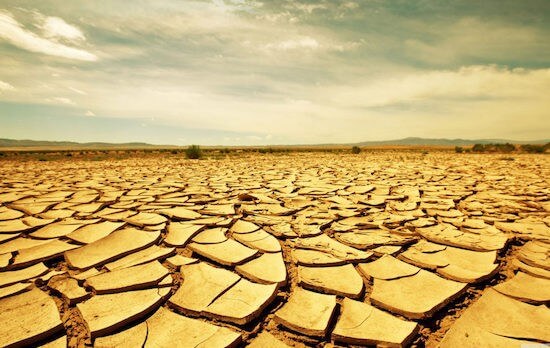
“You can’t drink from an empty cup”
This adage around self-care seems simple enough, but in these continuing ambiguous and volatile times we live in, today I’d like to ask you to consider whether you are tired, depleted, or perhaps both, and to be able to distinguish between them.
The picture above is of a dried-out lake bed. In some cases, a lake bed may simply dry out each dry season and fill up again in the rainy season. In other cases, the lake is fed for millennia by underground water sources, yet if more is sucked out of those water sources (say, for industry or agriculture purposes) than nature puts back in, then, over time, that water source may be depleted so much that the lake dies, forever.
Using this metaphor, a lake bed that dries out seasonally then recovers each year could be said to be tired, but then it rests and recovers. A depleted lake, though, would take much more to restore the reserves it needs to be fully replenished.
At this stage in the pandemic, many of us are at least somewhat depleted, so rest (eg a holiday this summer) may help us feel less tired, but will not necessarily do much at all to help us restore where we feel depleted.
A useful article on this from Lapin international notes:
..We are currently in the toughest phase of our pandemic experience. To explain what I mean, consider two different states of being: fatigue and depletion. Fatigue is when a muscle or the mind has been used almost to the point of failure and it requires rest to recuperate. Contrastingly, depletion is when our inner resources of energy have been drained—and this may have no connection to exertion. One can be depleted without feeling tired. And one can be tired without feeling depleted.
..Consider an empty glass of water. You can rest it for as long as you will, but rest won’t replenish its contents. Similarly, your body and mind are just containers. Your emotions, your intellect, and your spirit are the contents. You can only give emotional, intellectual, and spiritual output when your container is overflowing with content. This means you always need more emotional, intellectual, and spiritual input than output
..So how do you know if you are fatigued or depleted, and how do you treat depletion?
Fatigue generally applies to your body and your mind. Depletion generally applies to your emotions, your intellect, and your spirit. Depletion can give you the feeling of physical or mental exhaustion. But you know it’s not fatigue you’re suffering when rest and relaxation don’t replenish you.
The way to treat depletion is with restoration, not with relaxation. While relaxation is a passive state of “not-doing”, restoration is a deliberate, active choice of activities different from your routine activities, which add energy instead of consume energy.
We each will have activities that we can deliberately and purposefully choose that can restore us. For me, it can be exercise (particularly outdoors, so I love to cycle), being inspired by people (so meeting people), ideas (so I read a lot, as well as listen to audiobooks and podcasts).
Today I shall meet a friend, go for lunch and then for a walk with them. That will be restorative. It will fill my cup.
I hope you can use this post to consider your own awareness around your level of tiredness as well as depletion, then consider what you do or can use to restore your own reserves, to fill your cup.
